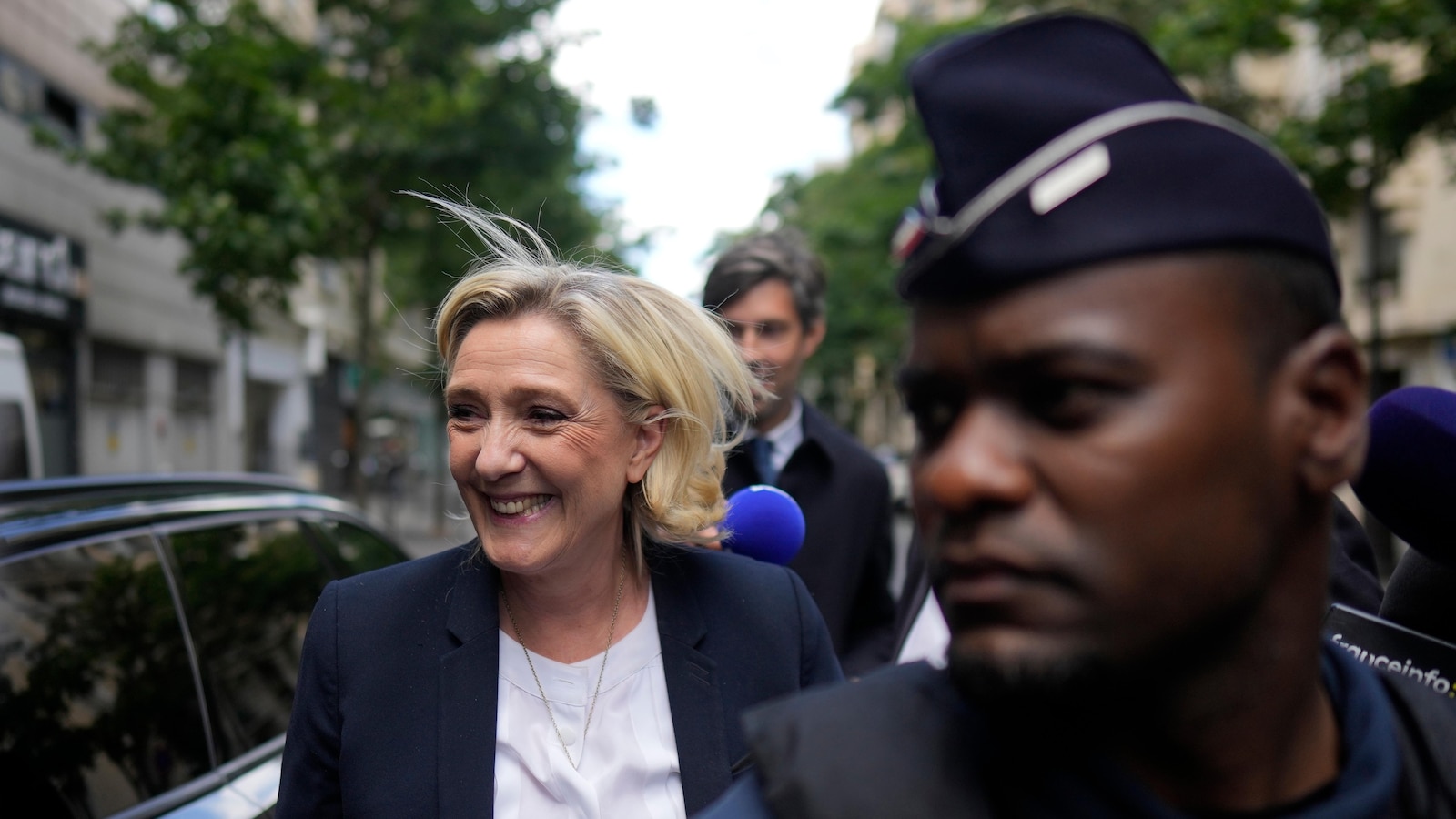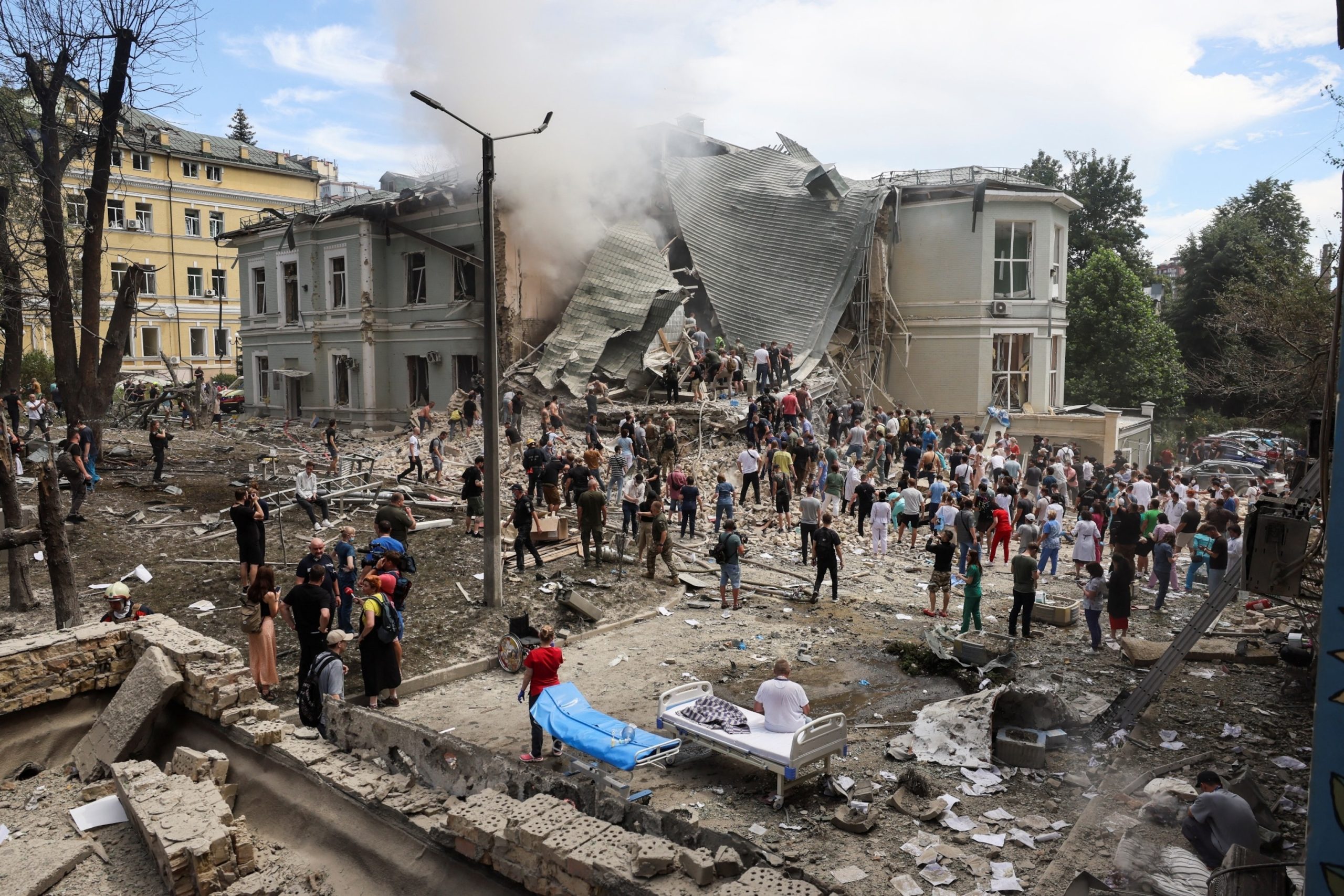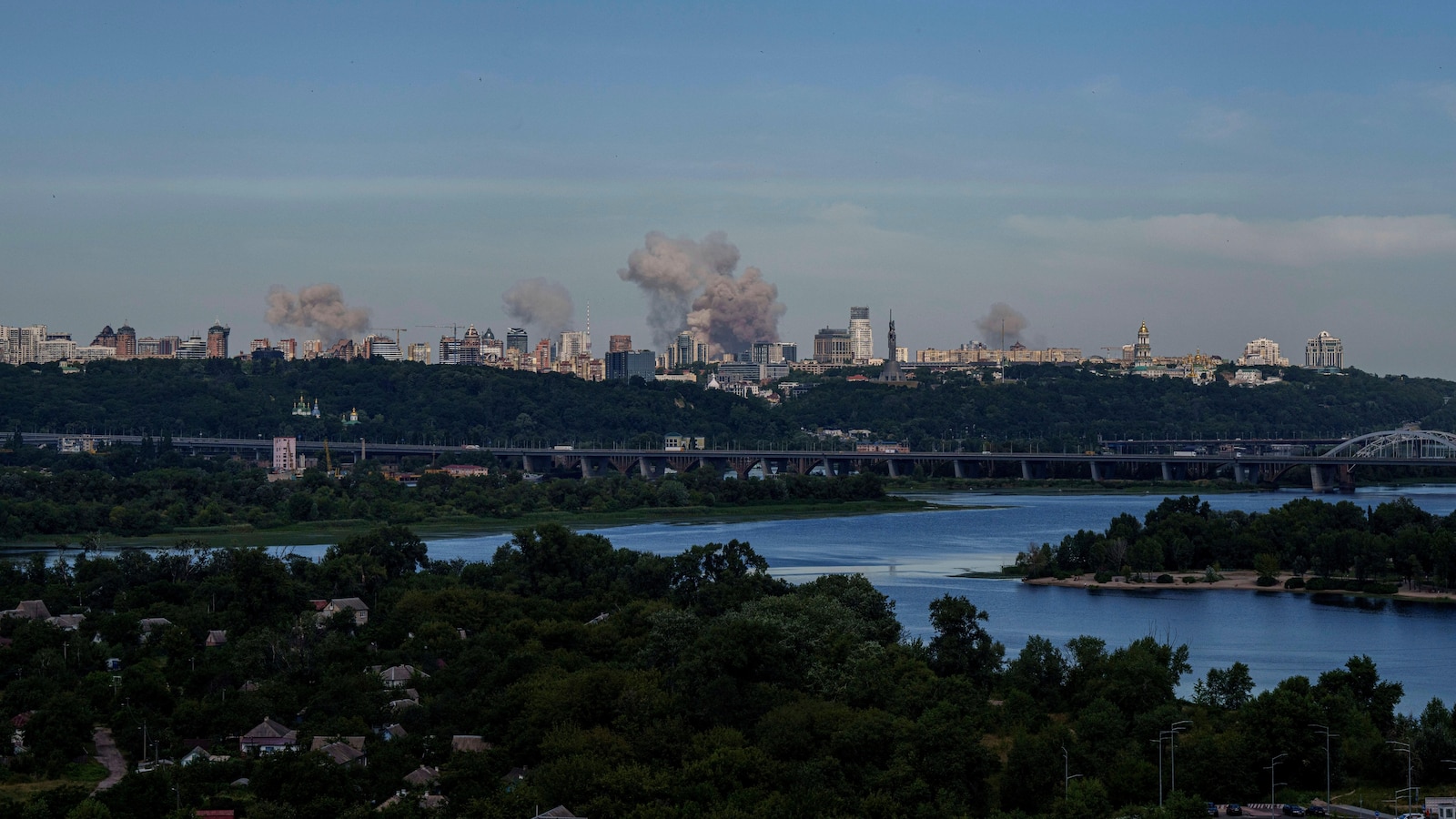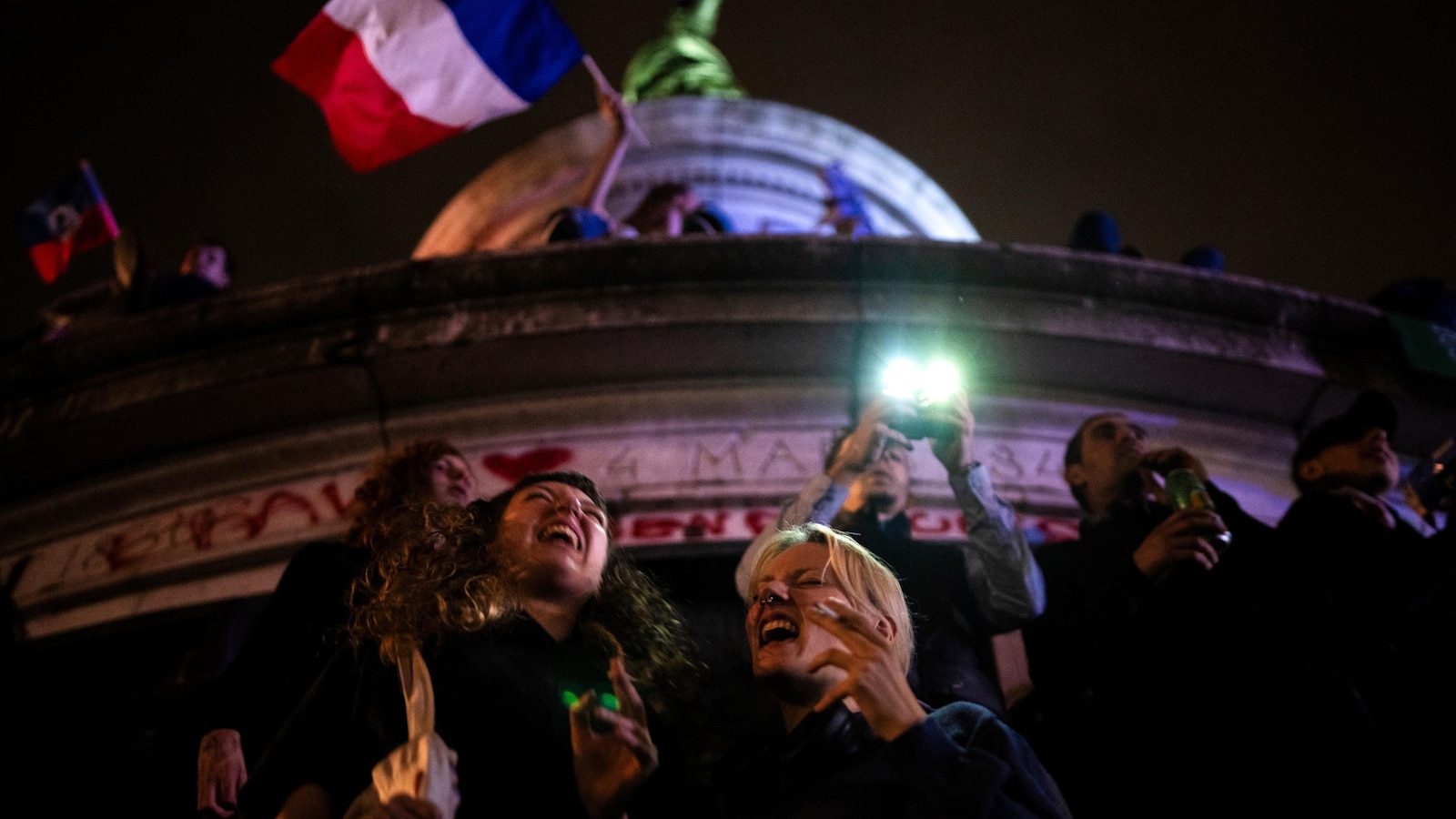
PARIS — Candidates in France’s pivotal and polarizing legislative elections were making their last pushes on Friday for the second and decisive round of voting after a three-week campaign marked by hate speech, verbal abuse and physical attacks.
French Interior Minister Gérald Darmanin said his ministry has registered 51 verbal and physical attacks against candidates, their deputies or their supporters during campaigning for the high-stakes parliamentary elections that end with the second round of voting on Sunday. Several attacks were “extremely serious,” Darmanin said in an interview with French broadcaster BFM on Friday.
At least 30 suspects “with extremely varied backgrounds” have been arrested, the interior minister said, adding that candidates and their supporters across France’s political spectrum have been targets of verbal and physical abuse.
“National Rally’s candidates were violently attacked … (as were) left-wing candidates,” Darmanin said.
Tensions are high as left-wing and moderate groups try to prevent the anti-immigration, nationalist National Rally from winning an absolute legislative majority, which would be a first and a major historical shift for France.
The National Rally, under party president Jordan Bardella, secured the most votes in the first round of the legislative elections on June 30 but not enough to claim an overall victory that would allow the formation of France’s first far-right government since World War II.
Darmanin said 30,000 police officers will be deployed on Sunday, including 5,000 in the Paris region, to ensure that the results of the election “are respected whatever they may be.” He said gatherings outside of the National Assembly, the lower house of parliament, have been banned.
A group called the Antifascist Action Paris-Suburbs called for a protest outside the National Assembly on Sunday night as results come in.
Many people have voiced concerns that the surge in voter support for the anti-immigrant National Rally has made people feel more comfortable using racist, xenophobic and antisemitic language in public.
The government agency tallying racist acts did not have recent data since the brief campaign began.
Candidates have complained of both hate speech and physical violence during the campaign.
Government spokesperson Prisca Thevenot, who is a candidate for the centrist Ensemble alliance led by President Emmanuel Macron, said she and a deputy and a party activist were putting up election posters in Meudon near Paris on Wednesday night when a group attacked them. Thevenot’s deputy and the party activist were taken to a hospital.
Macron called the surprise legislative election on June 9 after his alliance suffered a punishing defeat at the hands of the National Rally in French voting for the European Parliament, plunging the country into a sudden legislative campaign.
___
Follow AP coverage of global elections at https://apnews.com/hub/global-elections/
As the French legislative elections draw near, candidates from various political parties are making their final push to secure votes from the electorate. With voting day just around the corner, the stakes are high as the outcome of these crucial elections will determine the composition of the National Assembly and ultimately shape the direction of French politics for the next five years.
The legislative elections in France are held to elect members of the National Assembly, the lower house of the French Parliament. The National Assembly plays a crucial role in the legislative process, as it is responsible for passing laws, approving the budget, and holding the government to account. The outcome of these elections will determine which party or coalition will have a majority in the National Assembly and therefore be able to form a government.
In the lead-up to voting day, candidates are ramping up their campaign efforts to reach as many voters as possible. They are holding rallies, debates, and door-to-door canvassing to present their platforms and garner support. Candidates are also using social media and traditional media outlets to communicate their messages and engage with voters.
The stakes are particularly high in these legislative elections as they come on the heels of the presidential election, where Emmanuel Macron was re-elected for a second term. The outcome of these legislative elections will determine whether Macron’s party, La République En Marche (LREM), will be able to maintain its majority in the National Assembly or if there will be a shift in power towards the opposition parties.
The main opposition parties, including the conservative Les Républicains, the far-right National Rally, and the left-wing France Insoumise, are all vying for seats in the National Assembly. They are presenting themselves as alternatives to Macron’s government and are hoping to capitalize on any dissatisfaction with his policies.
In addition to the major parties, there are also smaller parties and independent candidates running in these elections. They are hoping to make a mark on French politics and bring new ideas and perspectives to the National Assembly.
As voting day approaches, it is crucial for voters to educate themselves on the candidates and their platforms in order to make an informed decision at the polls. The outcome of these legislative elections will have far-reaching implications for the future of France, so it is important for voters to participate in the democratic process and have their voices heard.
In conclusion, the final push made by candidates in these crucial French legislative elections is a testament to the importance of democracy and civic engagement. As candidates make their case to voters in the final days of the campaign, it is up to the electorate to decide who will represent them in the National Assembly and shape the future of French politics.


